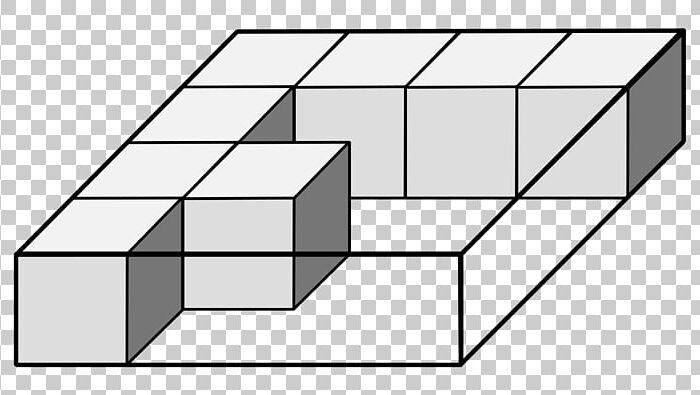Students need to work on many academic projects before they graduate or finish a course. Along with relatively large projects, like dissertations, research papers, and group assignments, students should also write countless essays, reports, and other academic papers. The amount of work required by instructors can be overwhelming, but it’s also important to keep in mind that students need to spend a lot of time preparing for exams, attending lectures, and participating in extracurricular activities. Even if you’re a very organized student, such a workload can be overwhelming and lead to complete exhaustion.
The enormous workload is one of the reasons why homework is a topic of hot discussion in the U.S. Some educators even think that homework is absolutely unnecessary. In 2017, homework was abolished in Marion County, Florida, following the same decisions of educators from Massachusetts and Vermont. Many teachers from East Tennessee also agree that a no-homework policy can be a great solution because students who do homework demonstrate the same performance as those who don’t. Nevertheless, some academic projects are crucial for students’ academic growth, and evaluation of student’s progress based on written projects has been practiced for many years so getting rid of all academic projects is an impossible task.
Academic Burnout
Academic burnout is a complex phenomenon that includes a negative psychological, emotional, and physical reaction to studying. Students who experience academic burnout suffer from a lack of motivation, frustration, and exhaustion, while also demonstrating poor overall academic performance. Usually, academic burnout is a result of many weeks or even months of studying the same subject or working on the same project. There is a difference between academic burnout and the short-term feeling of frustration that students may occasionally experience from studying for many hours because academic burnout is a chronic condition.
Academic burnout can lead to many psychological and physical problems, including anxiety, fatigue, insomnia, headache, hypertension, muscle tension, and gastrointestinal disorders. When you’re experiencing burnout, you may lose overall confidence in your abilities and feel irritated. You may lack creativity and lose any inspiration. It can also be extremely difficult for you to focus so the overall productivity will decrease, and you may also lose any interest in subjects that you used to enjoy.
If you feel that you cannot handle all of your academic projects, you should minimize your chances of academic burnout. Here are some effective tips and practices that will help you organize your studies, improve your productivity, and avoid burnout.
Things To Do When You Have Too Many Academic Projects
1. Determine your goals
First of all, you should figure out what your academic goals and responsibilities are. You should also know what your professor expects from you. Having clear objectives will help you plan your overall workflow so that you can approach any writing assignment prepared. When developing a working process separately for each particular task, you can lose a lot of time so we recommend that you consider your area of study and the main types of assignments you have to deal with, establishing a standard workflow so that you can manage all your writing projects similarly.
2. Plan all your academic projects in the same place
Planning all projects in one place is a very effective approach because this way, it’s much easier to track each task and determine what it needs. It will also be easier for you to track all the due dates and prioritize the most time-consuming tasks if you have one document where you plan your projects. Without seeing a full picture, you’ll be much more likely to forget something important so make sure to organize your projects properly. There’s no point in planning if it’s messy. You may plan all your projects in one spreadsheet or list. You can even use a variety of project management tools that offer convenient visual project boards.
3. Prioritize projects based on their complexity and deadlines
Students have to deal with different kinds of academic projects, and different projects have different timelines. If you need to write an essay, it may be due in two days, while a dissertation may take a year to write. Betterwritingservices.com states that American students use essay writing companies (or so-called essay mills) to keep up with their deadlines, though the legitimacy of some companies are questionable. To submit your projects on time and optimize your workflow, make sure to prioritize projects based on their scope and urgency. If you feel the need to hire an essay writer to finish your essay, do so in a timely manner.
Many students tend to do the simplest assignments first, and then move towards the most difficult ones. It may seem like doing the easiest tasks first is a good approach because they don’t take much time so you can complete more tasks faster. However, the right approach is to prioritize projects based on how soon you need to submit them. Consider the deadlines and then think of how complex each specific project is. Some projects may be more difficult than others so you will spend more time on them. Therefore, it makes sense to start working on them earlier.
4. Ensure effective communication
When working on group projects, not everything depends on you. Effective communication has a direct impact on the success of a group project. All members of the group should clearly communicate their expectations. This way, you’ll be able to have a clear plan and stick to it, instead of changing plans whenever someone realizes that the project doesn’t meet their expectations.
Communication is also necessary to assign tasks to the participants and make sure that everyone has clear responsibilities. When communicating expectations, it’s also important to estimate each participant’s contribution. Your group should work within an understandable context, and all participants’ expectations should be synchronized. Also Read – Guides on How to Write Any Papers
5. Be flexible
Not only should you plan your work and stay organized, but you should also track your progress. Besides, you should keep in mind that some of your priorities may change so you will have to change your plans, as well. For instance, you may suddenly get a new important assignment with a tight deadline so you will have to put your current project aside.
In this case, you will need to reflect on these changes in your plan and reconsider your workload. When working on group projects, it’s also important to have the main information source so that every contributor will be aware of any changes in priority. This way, they’ll also be able to plan their time properly and work on other tasks.
Wrapping Up
College students are constantly overwhelmed with academic projects. They need to write countless papers and work on group projects, so there’s no surprise that students often experience burnout. If you’re not sure whether or not you can handle all of your academic projects, put some effort into proper planning. Prioritize and schedule your tasks so that you can submit all of them on time and plan your work properly.




